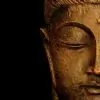Originally posted by: Darklord_Rehan
Lalitha, there is difference between 'claiming' to follow Dharma and actually following it. If you consider Shastras to be Dharma, then I am afraid, Draupadi Vastraharan was perfectly Dharmic. Actually, it was not...shastras are rules on how mankind is to live, yes, but like all other rules in society, they differ from situation to situation. The laws we have in a country are not the same for every situation. Every time a court is faced with a new rule-breaking done by someone under different circumstances than another, they will look at it differently. For example, murder is sin in our society and is punishable as a grave offense. However, if someone murders another under self-defense and that too as a last resort to save himself/herself and their family, courts will not punish them either not at all or not as severely as if they had killed another person for sadistic pleasure. The circumstances of the laws differ for each situation. Likewise, the rules of the shastras also differ for each situation. They are not ground out rules one must follow for each and every situation. A person should use the shastras to follow their Dharma, not to defend their Adharma.
1. Yudhishtir gambled away his brothers and wife : He had every right to do so, since the Shastras declare wife and children as the 'property' of the husband. For the same reason, Harishchandra sold away his wife and children. The shastras also say that the wife is a man's equal and that without both pillars standing erect, a household will collapse. These both are contradictory statements obviously, so which one should a person follow? The one that is according to their Dharma...what Yudhisthira and Harischandra did was not morally right according to Shastras (insert Vidur's refusal to consider Draupadi a slave), but because of the different circumstances both were under, they were compelled to do so. Also, both were without any support in those circumstances, surrounded by the supporters of their antagonists, so they had no choice but to do what they did. It was not right, and as neither of them were Gods they did have their faults as well, but the shastras definitely did not support their actions.
2. Duryodhan ordering the Vastraharan : Again he had every right to do that. The same Shastras declare slaves as the properties of their master and are indistinguishable from inanimate objects. The shastras also say every human has to behave in a humane fashion. Disrobing one's servant itself is sinful and a punishable offense by not only the King, but also by God. Disrobing anyone is sinful regardless of what they are to you, so Duryodhan was very much in the wrong by ordering Draupadi's vastraharan. Even had she been his slave, he should have quietly and with dignity ordered her to reside with the other servants. Even slaves had their rights back in those times, and no one would have taken to being disrobed quietly.
3. Karna calling Draupadi a wh**e : The Shastras say that any woman marrying/ begetting child to more than 4 men is a prostitute. Its because of this reason, Kunti refused to beget any more child after Arjuna, as she was already the mother of 4 sons from 4 different fathers. Shastras also say a mother's word is final and that whatever a mother tells you to do, even if it is considered sinful by others, the sin will not touch you. So does that rule out what you just said since both came from the shastras? However, one other rule that the shastras say is that God's word is final in any situation. If one is faced with a circumstance where two rules of the shastras conflict with each other, they must look to God for guidance and do whatever he says. So since Krishna himself married Draupadi to the Pandavas, she cannot be called a prostitute or anything else.
4. Dusshasan stripping Draupadi : Firstly she was a 'slave' and secondly, the Shastras declare Elder brother as equivalent of father. And obeying him is the biggest virtue. So even Dusshasan was virtuous if we consider Shastras to be Dharma. When Ravan kicked out Vibhishan and the latter sought refuge in Ram, Vibhishan himself used the shastras as support for his actions. When the elder brother is doing something sinful and has ordered you to partake in his sin, it is the duty of the younger brother to correct his mistakes, and if that fails, the younger brother must leave him so that the sin does not touch him. Vibhishan himself quoted from the shastras, and this too is true, so Dushashan was completely in the wrong by following Duryodhan's orders. One must use these two rules of obeying the brother and correcting the brother when he is wrong hand in hand. At all other times when an elder brother is right, it is the duty of the younger brother to follow his example, but when the elder brother goes astray, it again is the duty of the younger brother to correct him. One must make the distinction when the situation arises, since both rules come from the shastras.
Yes atheists can be Dharmic if my interpretation of Dharma is true and they are Adharmis if Dharma means obeying scriptures or regularly chanting the names of God. But then, just as scriptures vary from every religion, does the sense of Dharma vary too? That means for a Hindu, a Muslim is Adharmi, because he doesn't follow Shastras and for a Muslim, a Hindu is a Kafir because he doesn't obey Quran?? I do not consider Dharma to be following any one religion. I consider Dharma to be following just God. Whether you call that God Krishna, Allah, or Jesus, it does not matter. What is important is that all your actions in life are geared towards begetting the approval of God and securing a place in heaven because of your good deeds. That is what I feel is Dharma, and as atheists are those who do not even believe in the existence of God, any God, I do not believe they can be completey Dharmic.
And when you say Ram did his 'duty' then I wish to know what was this 'duty'? Is it serving justice by following his conscience or blindly obeying the social norms? He neither blindly followed social norms nor did he serve justice by following his conscience. What conscience would Ram have? Ram is God himself and God is conscience to everyone else, so God himself cannot have conscience. He followed his duty as King, and a King's Dharma is to see to the interests of his praja. Ram's dilemma is described very well in the Uttar Kand, and it is a whole new debate I have argued with many people in the past. That is why I say I cannot talk about it in this thread, because my mindset is still in the Dwapar Yug and it would be easier to dedicate a whole new thread to Ram. But one thing is certain. He who takes Shri Krishna as the ultimate guidance in the Mahabharata cannot criticize Shri Ram, because both were avatars of the same Shri Hari. When we look to criticize the actions of Gods, we can find pleny in Krishna too because some of his childhood leelas would have been wrong had a normal human being done them. But God is beyond right and wrong. God is the ultimate decider of Dharma and Adharma, so we do not fault Krishna and instead we love him all the more for every one of his leelas. Likewise, we also cannot fault Shri Ram for whatever may seem controversial to us. HE is beyond right and wrong, and God knows best no matter what situation it is. Accepting Krishna and refusing to accept Ram is like accepting one's right hand and shunnig the left, and vice versa. If one takes Shri Krishna to be the complete guidance in Mahabharat, he/she must also take Shri Ram to be the complete guidance in Ramayan or else they have not understood the deeper meaning of the two puranas.
It is so not her character and while she did have an arrogant side, she was also a great woman with self-respect and dignity. BRC is not the only one who overdid Draupadi's character in that one scene...many Telugu mytho movies I saw also did it, so I do not think it is blameworthy on any director. It is probably from some folk story which over-dramatized that scene to make us feel more sympathy for Duryodhan.
While Ramayan discussions are as interesting as any MB ones, they are more discussions than debates, because there is not much we can debate about in the Ramayan. Everyone is either good or bad, and the important thing in it is the message. It is full of messages that can help us throughout our lifetime, while in MB...the message is mostly anything that involves Krishna. We can't get much of a moral message from the Pandavas/Kauravas scenes except how to behave in society, trust God, etc. In MB there are innumerable debates, and the main message comes from the Bhagawad Gita more than the rest of the epic.






























